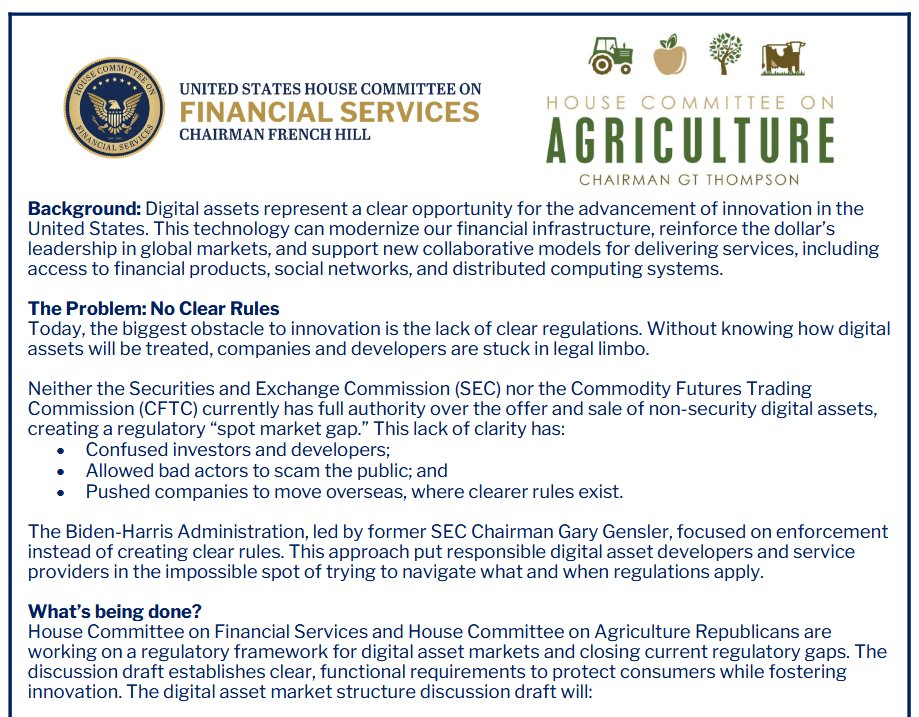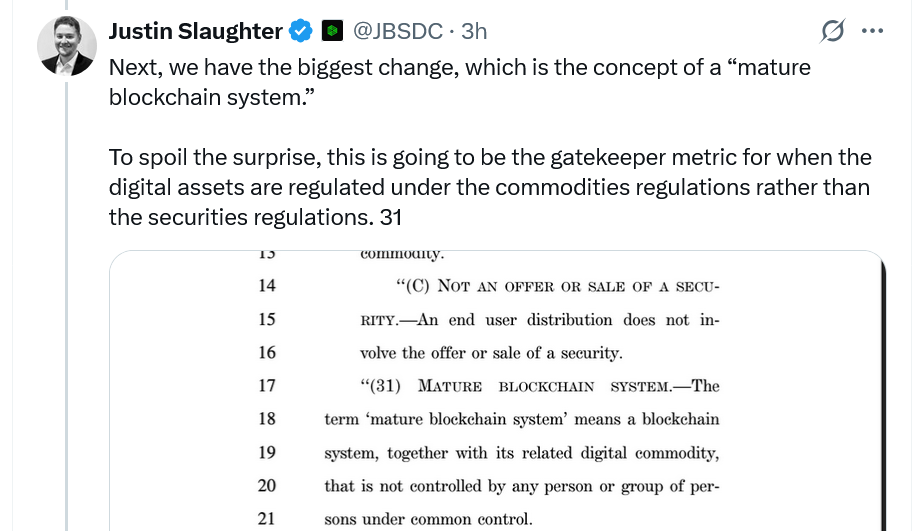
A New Era for Crypto Regulation?
A draft bill introduced by House Republicans could reshape the crypto landscape, potentially ushering in an era of greater market participation and reduced influence from large firms. The “Digital Asset Market Structure Discussion Draft”, released on May 5, proposes a framework for regulating crypto assets, aiming to address concerns about the industry’s concentration of power.

More Than Just Words: Potential Impacts of the Draft
Paradigm’s Vice President of Regulatory Affairs, Justin Slaughter, describes the draft as an “incremental, albeit meaningful, rewrite” of the Financial Innovation and Technology for the 21st Century Act (FIT21). One of the key changes in the new draft is a stricter definition of “affiliated persons.” This definition now includes anyone who owns more than 1% of a digital commodity issued by a project, compared to the 5% threshold in the FIT21 bill.
Slaughter believes this shift could significantly curb the influence of large crypto firms, promoting a more decentralized market. He argues that “This bill makes clear the regulatory regime proposed is going to push against that fact and strongly encourage more small-d ‘democratization’ of the space.”

Decentralization at the Core: A New Framework
The draft also introduces the concept of a “mature blockchain system,” defining it as one that, along with its related digital commodity, is not under the “common control” of any person or group. This emphasis on decentralization could pave the way for a more diverse and independent crypto ecosystem.
Furthermore, the draft clarifies the regulatory landscape for decentralized finance (DeFi) protocols. DeFi protocols that enable users to engage in financial transactions in a “self-directed manner” would be exempt from registration as digital commodity brokers or dealers.
A Path Forward: Collaboration and Clarity
The draft outlines a path for crypto firms to raise funds under the Securities and Exchange Commission’s (SEC) oversight. Simultaneously, it provides a “clear process” for registering digital commodities with the Commodity Futures Trading Commission (CFTC). This dual approach aims to create a more unified and transparent regulatory environment.
The House committee members emphasize the need for a collaborative effort between the SEC and CFTC, highlighting the importance of joint rulemaking and guidelines related to crypto asset delisting. This collaboration is crucial to ensure consistency and enforce compliance within the evolving crypto space.
Navigating the Road Ahead
While the draft represents a significant step towards a comprehensive crypto regulatory framework, it faces potential roadblocks. House Financial Services Committee Ranking Member Maxine Waters has indicated she will block a Republican-led event discussing the draft, highlighting the political divide surrounding crypto regulation.
The crypto industry is eagerly awaiting the outcome of this legislative process. The draft, if passed, could have a profound impact on the future of the industry, potentially shaping the trajectory of crypto for years to come.


